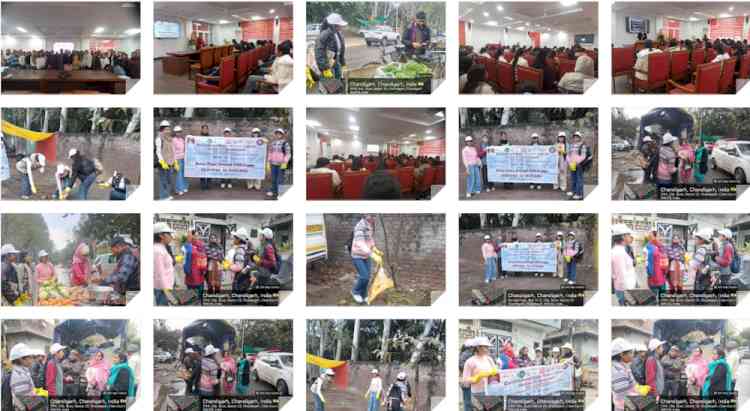Artificial Intelligence discovers new targets to boost vaccine development against infectious disease

Amity University (NOIDA, India) and Baylor College of Medicine (BCM- Houston, USA) researchers have developed a powerful AI platform to find clinically important vaccine targets and epitopes that could transform vaccine discovery process for deadly infectious diseases such as COVID19 and Chagas Disease. The results of this study have been published in UK based journal Scientific Reports, and PubMed, titled ‘Identification of vaccine targets in pathogens and design of a vaccine using computational approaches" by Dr. Kamal Rawal, Scientist, Associate Professor & Project Director, Amity Institute of Biotechnology, Amity University, as the lead author. Dr. Peter Hotez, (Dean, National School of Tropical Medicine, Baylor College of Medicine), Dr. Maria Elena Bottazzi (Co-Dean, National School of Tropical Medicine, BCM), and Dr. Ulrich Strych (Associate Professor, BCM) as senior co-authors. The article is available at nature.com/articles/s41598-021-96863-x
Infectious diseases kill several million people annually across the world. Despite the fact, vaccination is an effective measure to control infectious diseases- the rapid emergence of a highly pathogenic, readily transmissible coronavirus has resulted in a global pandemic. This catastrophe has exposed our shortcoming to develop safe and effective vaccines in minimal time frame.
A joint team of Indian and US scientists have announced today the successful development of artificial intelligence powered platform which can speed up vaccine development process, tested on 40 different pathogens including deadly SARS-CoV-2 (COVID-19), Mycobacterium tuberculosis (TB), Vibro cholerae (cholera) and Plasmodium falciparum (malaria).
According to Dr. Rawal “The key innovation is using artificial intelligence to combine several hundred parameters to mine several thousand proteins and genes to reach to the right targets and design vaccine using these proteins.” As an evidence, researchers tested this platform on several experimentally known vaccine targets including vaccines in the market. The team of researchers have long standing interest in neglected diseases of poverty. The team of researchers have long standing interest in neglected diseases of poverty, so they opted to analyze the whole genome and proteome (set of all protein sequences in a cell) of an important pathogen known as Trypanosoma cruzi (T. cruzi).
To help other biologists and experimentalist working in the area of immunology and vaccines, Dr. Rawal has created a cloud-based server which can be used by the researchers across the world to analyse their proteins and genes as potential vaccine targets. In the wake of emergence of delta variant of COVID19, the team is also engaging with various pharmaceutical and biotechnology companies for customized deployment for commercial scale application to develop new vaccines against emerging infectious diseases.
To validate the AI system, the team shortlisted over 335 experimentally verified antigens belonging to 40 different pathogens and found system was correctly predicting most of them with reasonable accuracy levels. These examples also include targets from FDA approved/marketed vaccines making strong case in favor of this platform. The next line of action is to inject mice with these computer suggested vaccines to demonstrate that the designed vaccines are nontoxic and sufficiently immunogenic (produce enough antibodies) before entering into clinical trials. “Right now, it is too early to tell how this work will affect patients down the line, but initial data suggest that the platform will be beneficial in several ways”, adds Dr. Ulrich Strych.
According to Dr. Hotez, first, we shortlisted important 8 proteins from the set of 19000 proteins and thereafter identified top epitopes (the part of an antigen molecule to which an antibody attaches itself) from these targets. “Subsequently, we designed multi-epitope vaccine against CD, it was followed by sophisticated analysis using bioinformatics tools to find whether the proposed vaccine is able to activate immune system”.
“An ideal vaccine target should not be similar to host proteins (humans) in order to avoid cross reaction and subsequent side effects, therefore special care was taken to filter such data during the study”, says Dr. Maria Elena Bottazzi.
The research was supported by the Kleberg Foundation, USA and Baylor College of Medicine, USA.


 cityairnews
cityairnews 










